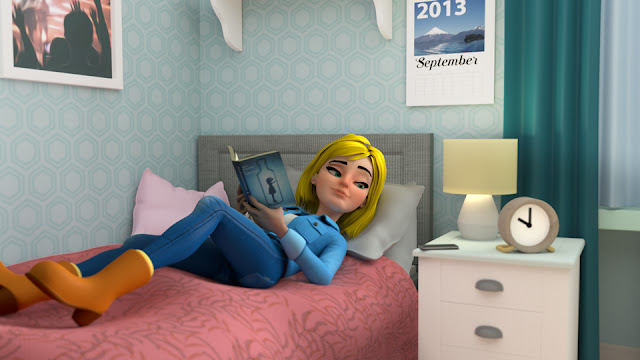Understanding the process of 3D Animation
3D animation is basically the idea of creating moving objects in a 3 dimensional digital environment, as opposed to regular animation we are used to, which is largely 2 dimensional. The images are supposed to have 3 dimensions, and move within a three dimensional space, or at least appear to do so, because similar to 2D animation, 3D animation process also involves a series of consecutive images that appear to move since they are shown in a very fast sequence.
There are three main steps to a 3D animation process, without getting into complex details:
·
Modeling
In this phase, the objects and characters are constructed.
This basic phase of 3D animation process
uses mathematical representation for all the elements. A shape is taken and
molded into a completed 3D mesh. A simple object or a “primitive” is taken and
is extended and grown into a shape that can be refined and detailed. A
geometric surface representation of any object can be achieved in specialized
3D software such as Maya or 3Ds Max. The 3D models are then given details like
color and texture. This is followed by a process known as rigging, which
sets up a skeleton for the animation character that will allow it to move.
·
Layout
and Animation
After the previous work is complete, one can move on to the
actual animation, which is the next step in 3D animation process. Here, the 3D object created can be moved
around freely. There's keyframe animation, in which the animator manipulates
the objects frame by frame, much like traditional hand-drawn cartoons. Other
ways of animation include arranging items on splines and configuring them to
follow the path of the curve, or importing motion capture data and applying it
to a character rig. Another option to animate is to leverage the physics
engines integrated into your 3D application, such as when your scene requires
objects to fall.
·
Rendering
Once the animator is satisfied with the animation as well as
the light and camera work, they can move on to rendering. Similar to video,
rendering in 3D animation is what completes the process, depicting the final
output of the process. When dealing with a 3D animation, every scene is
separated and rendered into multiple layers including objects, colors,
background, foreground, shadows, highlights, et cetera. The layers are going to
be united again in the post-production stage. This is essentially rendering or
compositing, which is the final step in 3Danimation process.




Insightful overview! As a leading 3D animation company, TVS Cube transforms ideas into visually stunning animations through expert modeling, rigging, and rendering — delivering creative excellence for every project.
ReplyDelete